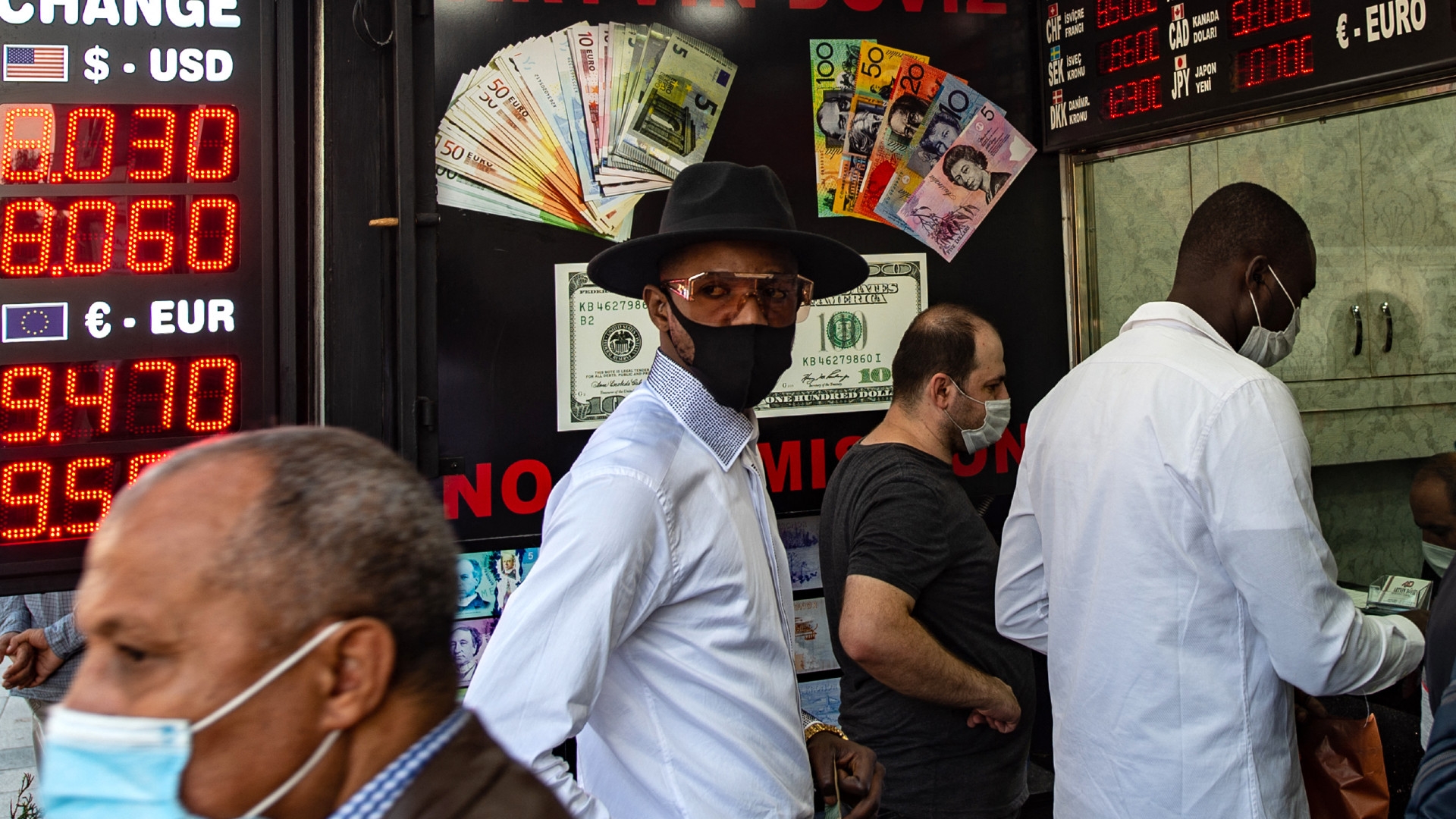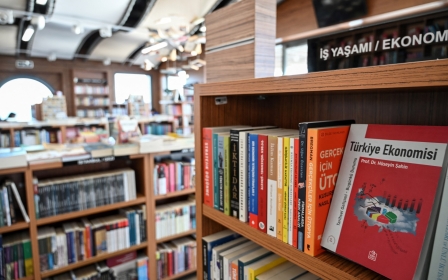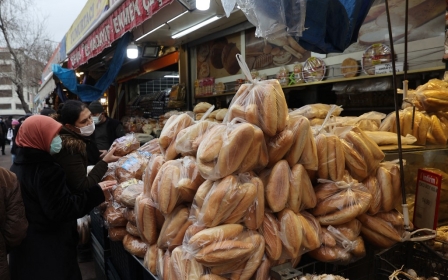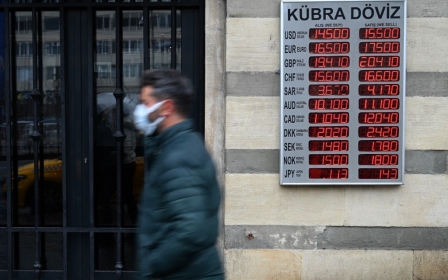Turkey: Inflation hits two-decade high

Turkey’s annual inflation rate hit a two-decade high in February as President Recep Tayyip Erdogan’s government cut interest rates, data from the country's statistics agency showed on Thursday.
The data found that while consumer prices increased by 4.8 percent in February from the previous month, annual inflation reached 54.4 percent.
The Turkish lira has been broadly stable since the start of the year - despite losing 44 percent of its value against the dollar in 2021 - since the central bank slashed its policy rate, despite soaring inflation, under an unconventional policy driven by Erdogan.
Inflation has risen worldwide due partly to financial policies adopted as a result of Covid-19. But the problems appear to have been made worse for Turkey by Erdogan’s unorthodox economic approach, which rejects the idea that inflation should be fought by raising primary interest rates.
New MEE newsletter: Jerusalem Dispatch
Sign up to get the latest insights and analysis on Israel-Palestine, alongside Turkey Unpacked and other MEE newsletters
Contrary to conventional economic thinking, the Turkish president believes this causes prices to rise even higher.
Opposition figures and some economists believe that the country's official figures are downplaying the reality of the situation.
Erdogan replaced the head of the state statistics agency in January. Turkish media had reported that the president was unhappy with the inflation statistics it published.
In February, Erdogan announced he would cut value-added tax from eight percent to one percent in order to bring down the inflation rate.
Erdogan called on companies to lower their prices to reflect the change.
Last month, Fitch Ratings, an American credit ratings company, downgraded Turkey’s debt from BB- to B+ with a negative outlook, referring to high inflation and a lack of confidence in officials to reverse the country’s economic outlook.
The rising cost of living has become a significant source of public discontent in Turkey as Erdogan seeks to win next year’s presidential election.
What is Erdogan's economic model?
Erdogan insists that lower interest rates will be beneficial for his country's economy, and says patience is needed to see the results of this new, uncharted and controversial policy.
What exactly the president wants out of this situation is unclear, but the answer might lie in a presentation submitted to him and written by his chief economic adviser, Cemil Ertem.
The presentation, New Economic Model: Reasons and its Benefits, obtained by Middle East Eye in December, focuses on the chronic economic problems Turkey has faced over the past few decades, caused by high borrowing costs and lower exchange rates.
The main message is economic independence. Over and over, Ertem emphasises that it is impossible to be economically independent while carrying out a financial policy based on high interest rates or International Monetary Fund recommendations.
Ertem asserts that a policy of high interest rates has triggered a vicious circle of low exports, lower employment, high imports, growing external debt and dependence, which again requires higher interest rates, completing a full circle.
"As a result, the country is posting a high current account deficit and depending on short-term hot money inflows and raising the external debt," he says in the presentation.
"This economic model, due to its external dependency, is laying [the] ground for economic attacks."
Middle East Eye delivers independent and unrivalled coverage and analysis of the Middle East, North Africa and beyond. To learn more about republishing this content and the associated fees, please fill out this form. More about MEE can be found here.





